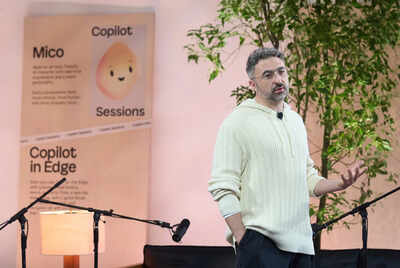ARTICLE AD BOX

File picture: Mustafa Suleyman,CEO of Microsoft AI (AP Photo/Damian Dovarganes)
Microsoft is forming a team that will be tasked with performing advanced artificial intelligence research. Mustafa Suleyman, CEO of the Microsoft AI group that includes Bing and the Copilot assistant, announced the formation of the MAI Superintelligence Team.
Suleyman said that that he will be leading it. Called the MAI Superintelligence Team, the project follows similar efforts as by Mark Zuckerberg's Meta Platforms, Safe Superintelligence Inc and others that have begun targeting technical leaps. In fact, Facebook parent Meta has been spending billions to hire talent for its new Meta Superintelligence Labs unit that’s working on research and products. Meta this year offered $100 million signing bonuses to recruit AI engineers, leading the AI talent war.
What is Superintelligence technology
The term superintelligence typically refers to machines deemed more intelligent than the smartest people.
Microsoft Superintelligence Team says its goals are 'different'
Microsoft's effort comes with a twist. According to Suleyman, the company is not chasing "infinitely capable generalist" AI like some peers. The reason, he said, is he doubts that autonomous, self-improving machines could be controlled, despite research into how humanity might keep AI in check. Suleyman said he aims to focus the Microsoft team on specialist models that achieve what he called superhuman performance while posing "virtually no existential risk whatsoever.
" “We are doing this to solve real concrete problems and do it in such a way that it remains grounded and controllable,” Suleyman wrote. “We are not building an ill-defined and ethereal superintelligence; we are building a practical technology explicitly designed only to serve humanity.” He said Microsoft has a vision for "humanist superintelligence," or technology that could solve defined problems with a real-world benefit."Humanism requires us to always ask the question: does this technology serve human interests?" said Suleyman.He said the effort is based on AI that reasons through problems and still would require breakthroughs. But if achieved, he said the AI would "increase our life expectancy and give everybody more healthy years, because we'll be able to detect preventable diseases much earlier."

 1 hour ago
4
1 hour ago
4








 English (US) ·
English (US) ·